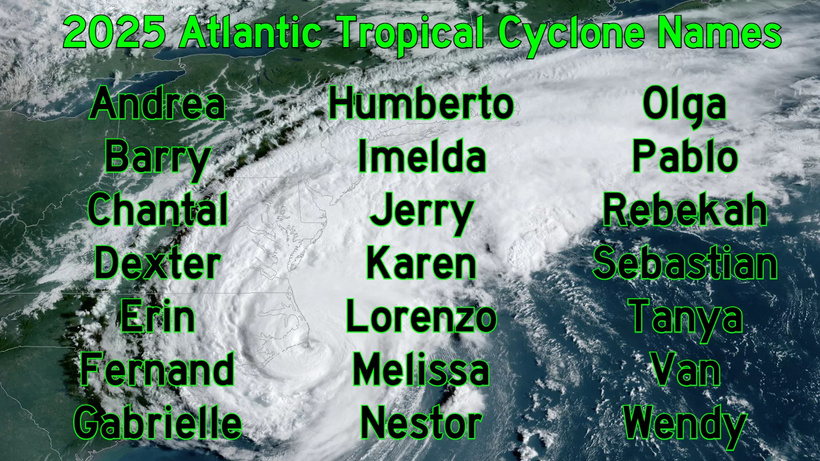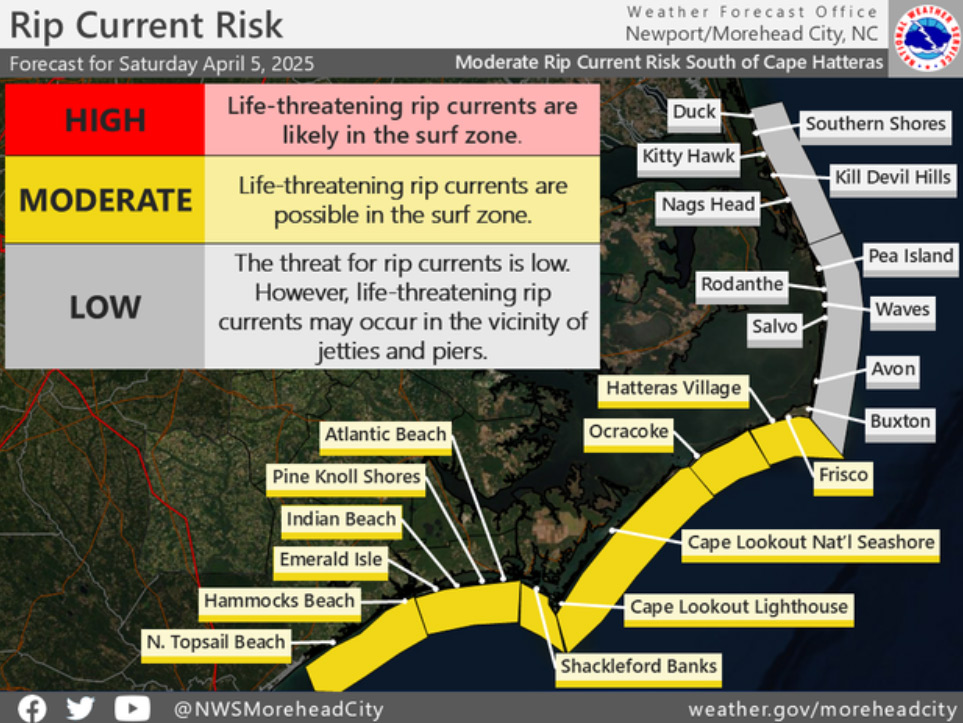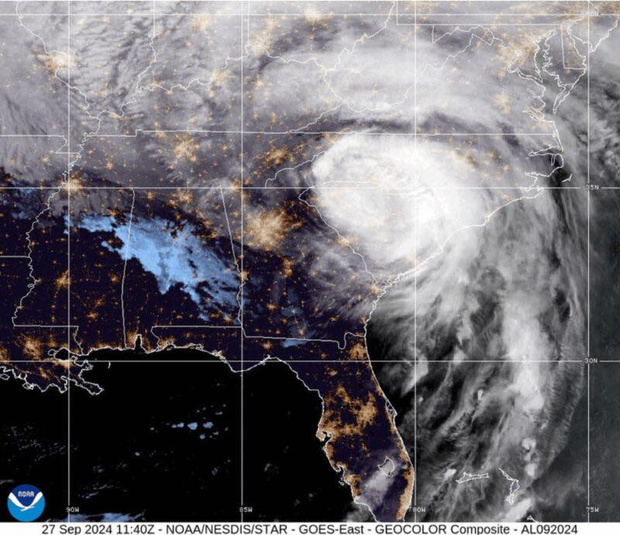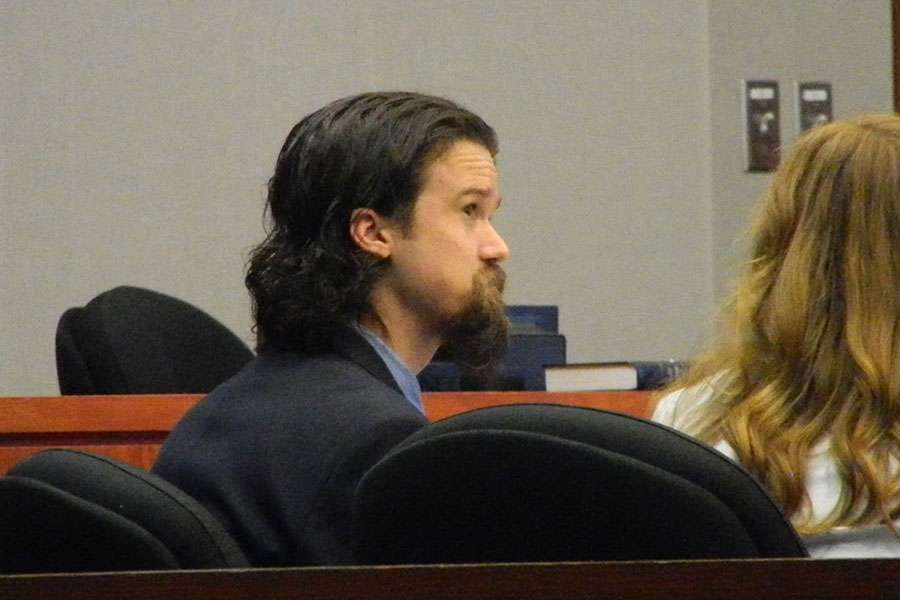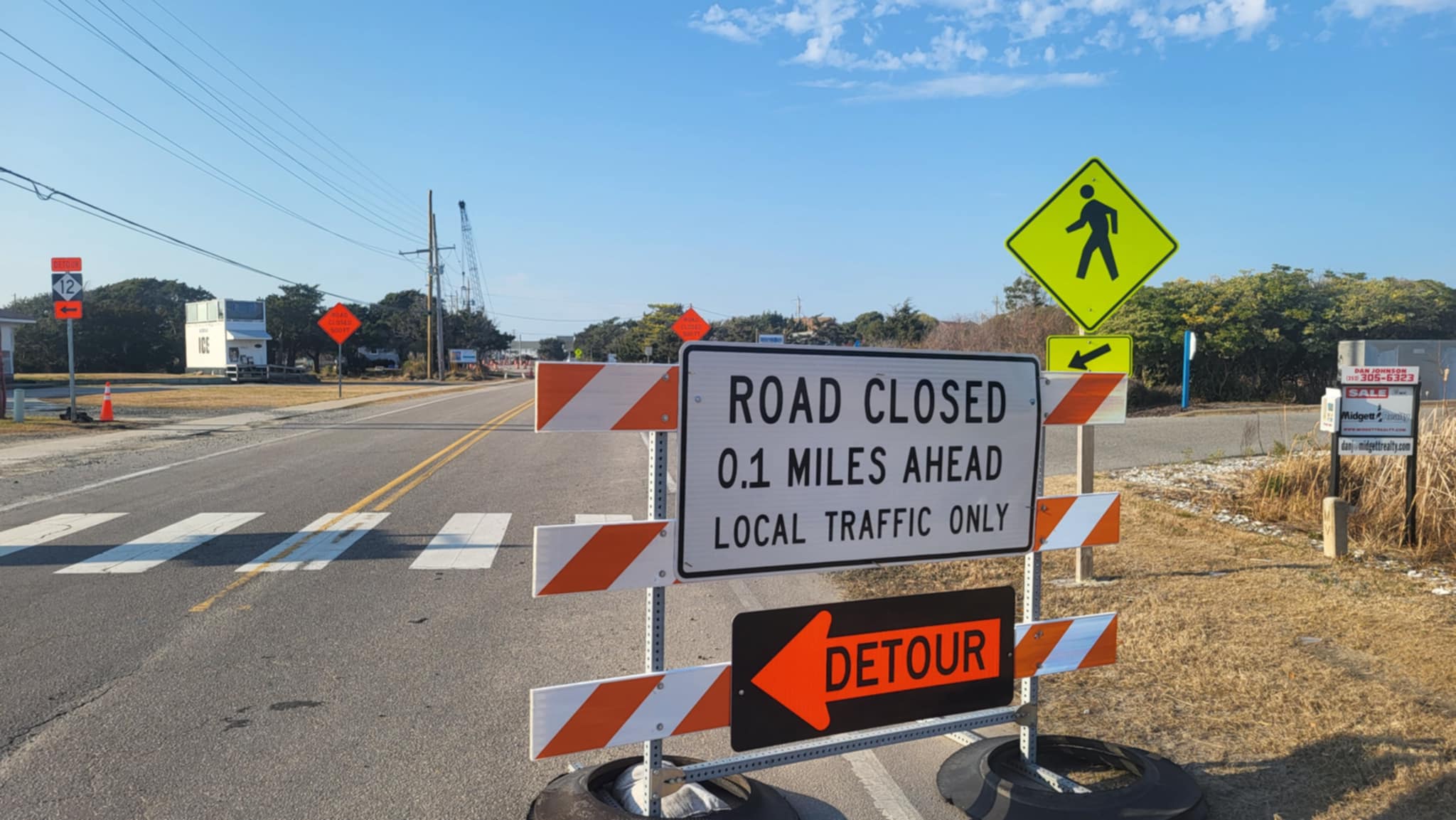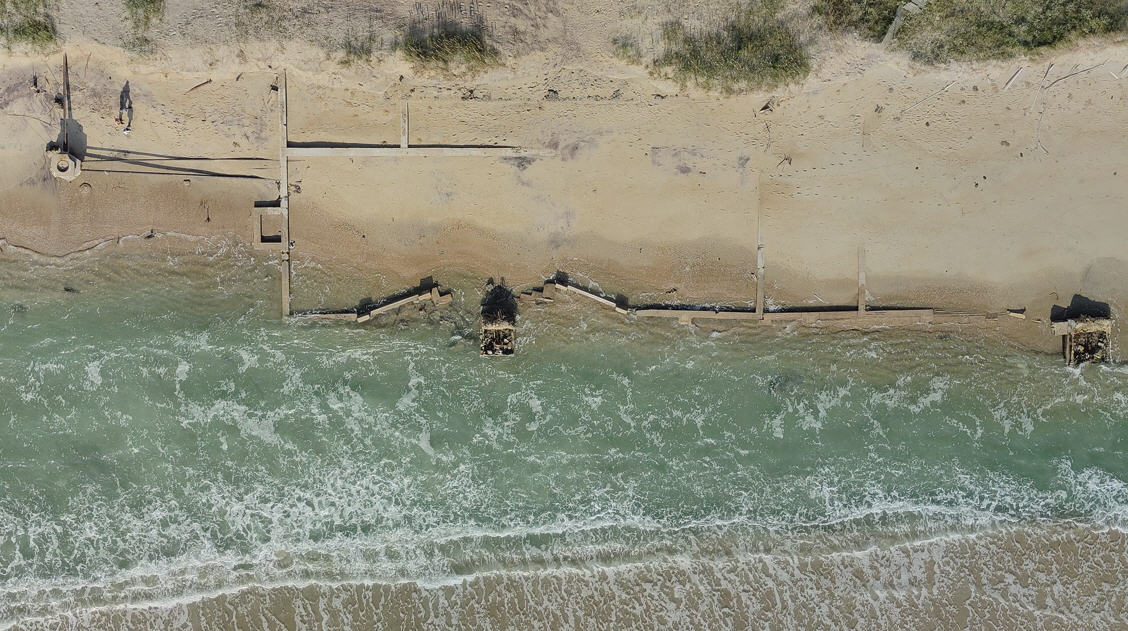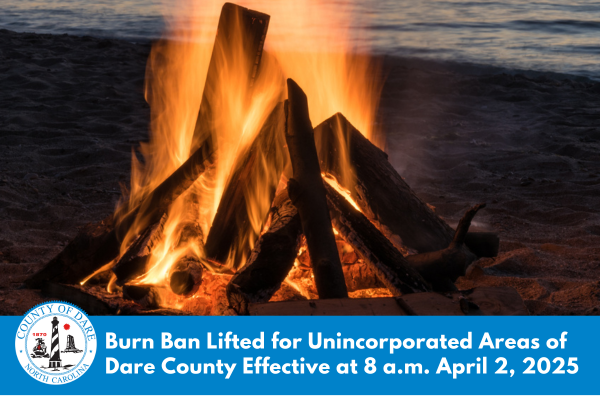Hatteras Island residents weigh in on post-Dorian reentry at BOC meeting
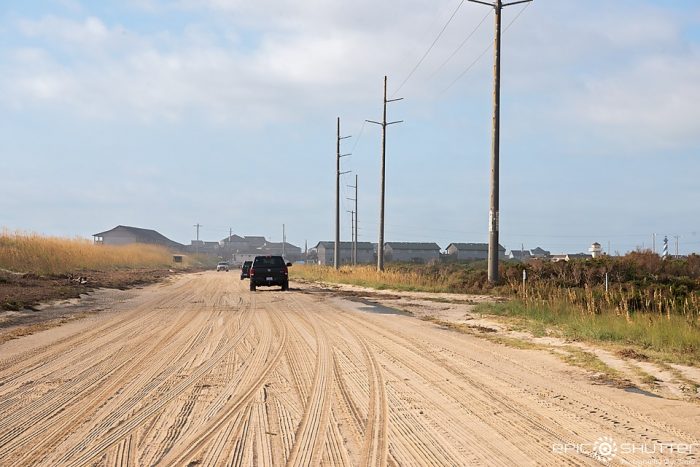
Storm-weary Hatteras Island residents lambasted the Dare County Board of Commissioners at its regular meeting on Monday about what they said was premature re-entry of visitors to the island after Hurricane Dorian, which earlier this month downed trees and flooded property most severely in Frisco and Hatteras villages.
“I woke up Saturday morning still in ankle-deep sludge,” islander Rich Donner told commissioners during public comments broadcast remotely to Manteo from Buxton. “I worked for three days to get my house cleaned.”
But when he heard that visitors were coming back, he had to leave his own mess to get ready for business, Donner said, adding that no one thought “it was the proper decision” to let them back that early.
“I’ve heard arguments for different reasons,” he said about re-entry. “How many of those people are just like me? They were standing in sewage when their bosses called and said they have to get back to work. . . It was kind of like the Hunger Games. There wasn’t a whole lot of time after we got the bulletin to get ready.”
Donner was one of seven island residents of about 20 in attendance who spoke at the Fessenden Center location. An additional three people commented in Manteo. Although some comments were mixed with appreciation, nearly everyone was critical of the county for allowing vacationers to return before the island – especially the southern end – had recovered and was re-supplied.
In a defensive effort to pre-empt the critics, Chairman Bob Woodard gave an in-depth overview before the comment period of the county’s decision-making process before and after Dorian headed directly towards Cape Hatteras.
While noting that the event “certainly has brought a lot of angst to our citizens,” Woodard said that there has been a lot of “misinformation” about what goes into the calls made by the Dare County Control Group, a coalition that includes town mayors, the sheriff and the National Park Service superintendent, among others, and consults with a wide range of support personnel. The chairman says that state law gives the county and municipalities the power to issue evacuation orders based on weather reports, road conditions, access to medical care, availability of water and commodities, power outages and determinations of vulnerability and risk.
“First and foremost,” he said, “we have to consider the public safety concerns.”
On Monday, Sept. 2, the Control Group declared a state of emergency. The county issued a mandatory evacuation order for visitors the following day.
On Wednesday, the same order was issued for residents. After Saturday, when the storm had passed and the power was mostly restored on Hatteras Island, Woodard said, the emergency conditions had ended.
At 7:45 p.m. that day, the Control Group issued a bulletin announcing that reentry to areas north of Oregon Inlet would be effective immediately for non-resident property owners and employees of non-critical businesses, and for permanent residents and essential personnel for critical businesses on Hatteras Island. The bulletin included a warning to drive slowly through sand and water remaining on island roadways. Additional reentry announcements continued incrementally, with visitors allowed entry to Rodanthe-Waves-Salvo on Tuesday, Sept. 10, and to areas south of the tri-villages on Thursday.
Woodard said that he and Commissioner Danny Couch, the island’s representative on the board, spent all day Saturday speaking with members of the community.
Many considerations come into play in reentry decisions, Woodard explained, including balancing the needs of all concerned: property managers, property owners, retailers, restaurant owners and other small businesses. Service industry employees often live paycheck-to-paycheck and depend on the summer income to survive, he added.
“Two days makes a tremendous difference in their lives,” he said. “We didn’t just willy-nilly make these decisions. We understood that 100 percent of the rental units weren’t ready. However, many of those units were.
“Now let’s face it, it’s a complex issue, folks,” Woodard added. “There’s no way the control group can make everybody happy.”
John Head, who along with his wife owns Colony Realty, told the commissioners that he was confused by references to an Emergency Operations Center (EOC) on Hatteras Island in the county’s emergency operations plan posted on its website, because the Hatteras EOC no longer exists. He also questioned why the re-entry process wasn’t followed “the way it’s spelled out” in the plan.
In response, Dare County Emergency Management Director Drew Pearson said that the county is in the process of updating the current emergency operations plan, which was written in 2007, and he expects it will be completed in six months to a year.
As to why every Realtor was not directly notified about reentry calls, Dare County Manager Bobby Outten explained that in the interest of efficiency, an agreement was made 12 years ago to communicate with a designated Hatteras Realtor, who acts as a liaison with other real estate and property management companies. Outten also said that the county still follows an emergency plan, “but it isn’t published.”
But Head questioned why the county’s communication seemed to still have left many in the dark.
“Well, you weren’t talking to the people who had to get back to work,” he said.
Other residents told the board that it appeared that making money seemed to outweigh the safety of the villagers.
“People should be allowed the proper time to do what they need to do,” Tina Garetelman, who has lived on the island for 35 years, commented from Buxton. “Where is there safety when you don’t even give us 48 hours or 72 hours to properly clean our houses? “
“Bring that money, honey, that’s what they care about,” she said in a later comment.
Hatteras resident Rosa Alice Mayer said she evacuated, but now she fears that her 2-year old, $55,000 van she uses to transport her disabled son will suffer saltwater damage to its undercarriage, which she has not been able to wash since the storm.
“We came back Sunday,” Mayer told the board, commenting from Buxton. “We were horrified when we hit the bathhouse in Frisco. That was not a little bit of water – that was a lot of water… You have to do a better job making sure people have safe passage.”
Part of the problem may be that the northern beach communities, which typically face less risk and damage from tropical storms, are overrepresented in comparison with Hatteras Island on the Control Group, some speakers said. Whatever the reason, they agreed that there is an apparent disconnect between reality on the ground on Hatteras Island and decisions made by the Control Group in Manteo.
“I don’t know where you were getting your information,” Salvo resident Elaine Hooper said to Couch, “but I’m sorry to say this, you were clearly misinformed.”
After the speakers had their say, Woodard said that county “doesn’t claim to be perfect,” although it has tried to make the right decisions based on the information it had.
“But we’ll learn from this,” he said. “We will make every effort to improve when we have a situation like this.”




